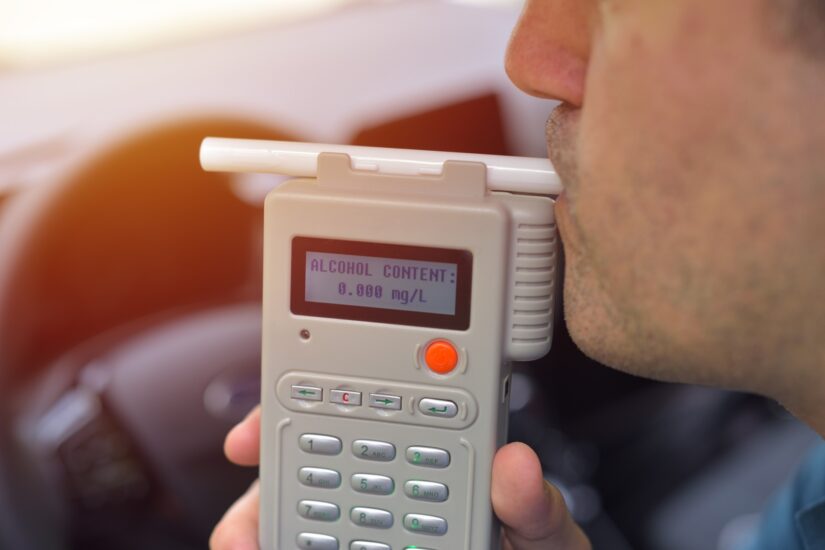
November 19, 2025
Facing a third DUI charge in Texas is not just another run-in with the law, but a potentially life-changing situation. By this point, the courts view you not as someone who made a single mistake but as a repeat offender, which carries harsher penalties and long-term consequences. From mandatory jail time to license revocation and steep fines, a third DWI conviction in Texas can disrupt nearly every part of your life.
If you or someone you love is facing DUI charges, our experienced Texas DUI attorney, George Napier, is ready to defend you. Whether you are a first, second, or third DUI offender, our defense team will fight for your freedom, and we will leave no stone unturned to achieve the best possible outcome for you.
How Texas Law Defines a Third DWI Offense
Under Texas Penal Code §49.04, driving while intoxicated means operating a motor vehicle in a public place while not having the normal use of mental or physical faculties due to alcohol, drugs, or a combination of both. A third DWI is considered a third-degree felony, which means the stakes are dramatically higher than for a first or second DWI.
Unlike earlier offenses that might be handled as misdemeanors, a third DWI conviction carries felony-level punishment. This means that the case is prosecuted more aggressively, the sentences are longer, and the long-term effects (like losing professional licenses or facing employment barriers) are far more serious.
What Triggers a Third DWI Charge
A third DUI charge does not have to occur right after two back-to-back convictions. Even if sufficient time has passed since the previous offenses, the state can still count prior DWIs toward this new charge. Any combination of prior DWI convictions, whether they occurred in Texas or another state, can elevate your current arrest to a felony-level offense.
It is important to note that prosecutors in Texas will thoroughly examine your record to verify prior convictions. Once they confirm two valid DWI convictions, your new case will automatically be treated as a felony.
3rd DWI Penalties in Texas
The 3rd DUI penalties in Texas are severe and life-altering. As a third-degree felony, the punishment can include:
- Prison Sentence: Between two and ten years in a Texas state prison.
- Fines: Up to $10,000 in fines, not including court costs or additional surcharges.
- Driver’s License Suspension: From 180 days to two years.
- Ignition Interlock Device: Mandatory installation in your vehicle as a condition of bond or probation.
- Community Supervision or Probation: If granted, this typically involves alcohol treatment programs, random testing, community service, and compliance with all court conditions.
- Substance Abuse Evaluation: The court will generally order an assessment to determine if you require long-term treatment.
In addition to these criminal penalties, you may face collateral consequences, such as higher insurance rates, difficulty securing employment, and the loss of professional certifications or firearm rights.
Habitual Offender Status and Enhanced Sentencing
Texas law is particularly tough on repeat offenders. Once a person becomes a third DUI offender, they risk being labeled a “habitual offender,” which can lead to enhanced punishment.
For example, if your prior DWIs included aggravating factors (such as a high blood alcohol content, an accident involving injury, or having a minor in the vehicle), prosecutors can use these details to argue for harsher penalties or even elevate the charge further.
For those with previous felony convictions beyond DWI, a third DWI could escalate to a second-degree felony, which carries a prison range of 2 to 20 years.

Potential Defenses Available for a Third DWI in Texas
Being charged does not automatically mean you will be convicted. An experienced third offense DUI lawyer will look for weaknesses in the prosecution’s case from the very beginning. Common defense strategies include:
- Challenging the Traffic Stop: The police must have had reasonable suspicion to stop your vehicle. If that is not clearly established, the stop could be unconstitutional.
- Questioning Field Sobriety Tests: These tests are subjective and prone to human error, especially if the officer failed to give proper instructions or misinterpreted your performance.
- Reviewing Blood or Breath Test Accuracy: Machines used for breath analysis must be properly calibrated, and blood samples must follow a strict chain of custody. Errors in these processes can invalidate the results.
- Examining Procedural Errors: Any failure by law enforcement to follow proper arrest protocol could lead to the exclusion of key evidence.
- Evaluating Prior Convictions: Sometimes prior DWIs are used improperly to enhance the current charge. A lawyer can challenge whether the previous convictions were legally valid for enhancement purposes.
A skilled tthird offense DUI lawyer will analyze each detail of your case, including every report, test result, and procedural step to identify opportunities for dismissal, reduction, or alternative sentencing.
Alternative Sentencing and Diversion Options
Although a third DWI is a felony, not every case ends in a prison sentence. In certain situations, it may be possible to negotiate for community supervision or participation in rehabilitation programs instead of incarceration. Courts in Texas sometimes allow treatment-focused alternatives if it can be shown that the defendant is taking meaningful steps toward recovery.
Completing an inpatient alcohol program, installing an ignition interlock device, and attending Alcoholics Anonymous meetings may all help demonstrate accountability and rehabilitation. Judges may take these factors into account when determining sentencing.
The Importance of Early Legal Defense in Texas DWI Cases
One of the most important things you can do after being charged is to seek legal representation immediately. The earlier your Texas DWI defense attorney gets involved, the more opportunities they have to challenge evidence, negotiate with prosecutors, and protect your rights. An early intervention may also allow for:
- Preservation of video evidence from the scene before it is deleted.
- Independent testing of blood samples.
- Early negotiation for reduced charges or diversion options.
Waiting too long to act can limit your defense options and allow procedural deadlines to pass, which can weaken your case. A dedicated lawyer will also explain the difference between a DUI and a DWI in Texas.
The Long-Term Impact of a Third DWI Conviction
A third DWI conviction goes beyond fines and prison time. The long-term damage can affect nearly every part of your life. Employment opportunities, housing applications, and professional licensing boards often require background checks, which will reveal a felony conviction.
Additionally, if your driver’s license is suspended, you may need to rely on an occupational license just to get to work or take care of your family. Even after reinstatement, insurance premiums can skyrocket for years.
Get Strong Legal Representation from Our Texas DUI Defense Attorney
At Napier Law Firm, we understand what is at stake when you face a felony DWI charge. George Napier is a well-known and respected Texas DWI attorney who has built his reputation on being experienced, direct, and aggressive in the courtroom. With over 200 cases dismissed and counting, our team knows how to dissect every aspect of a criminal defense case to find the weaknesses others might miss.
When you work with us, you get a formidable legal fighter on your side who will challenge the evidence, question improper police conduct, and stand by you through every stage of the process. Whether you are facing your third DWI or have prior convictions that make your situation more complex, we provide the individualized attention your case deserves.Reach out to us today. We will review your case, explain your legal options, and begin building a defense designed to protect your rights and your future. To schedule your free consultation, call us 24/7 at (713) 470-4097 or contact us online.